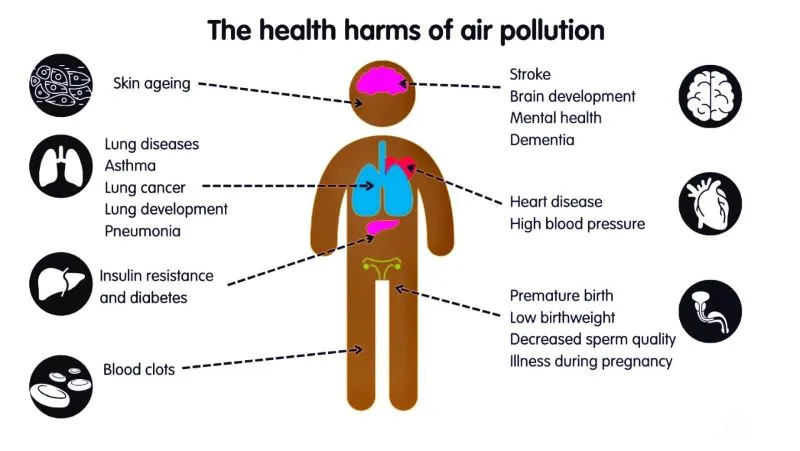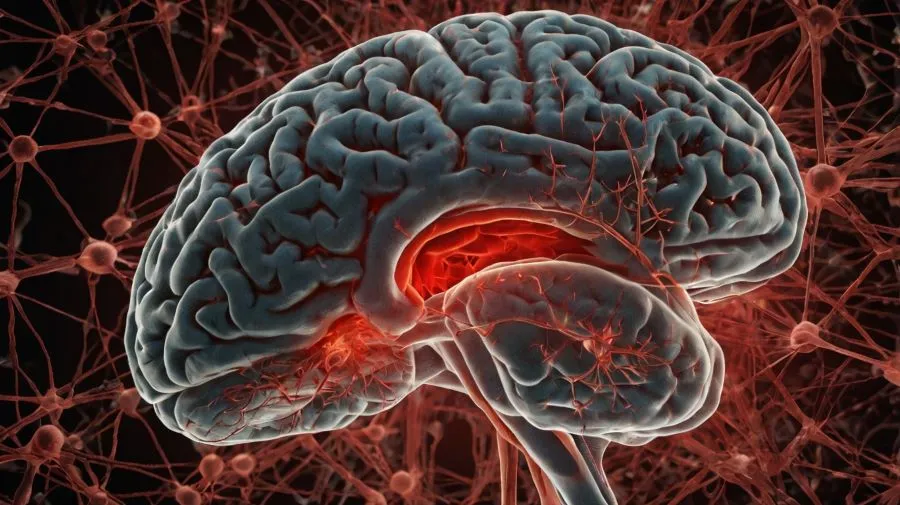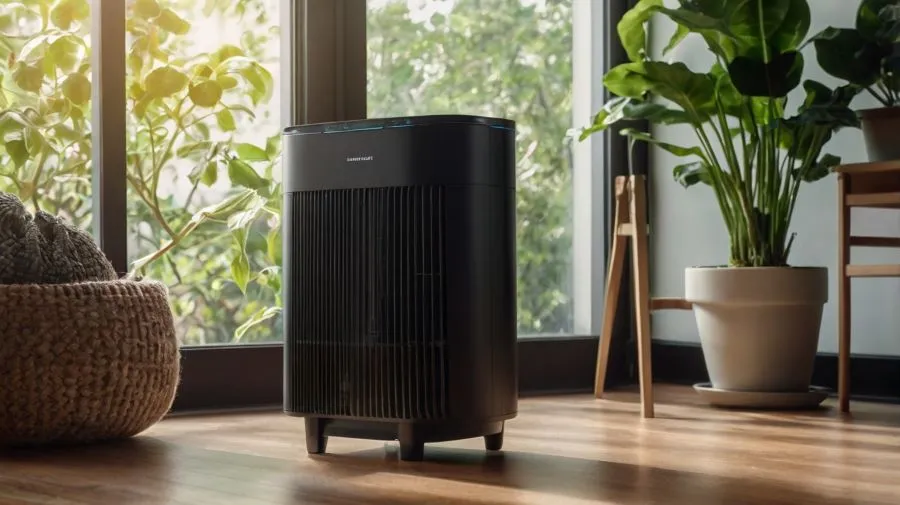The Deep Connection Between Air Pollution and Depression
Written by
Updated :
1 year ago
Depression is a leading mental health disorder globally, affecting millions of lives. In the United States alone, over 7% of individuals experience major depressive disorders annually. While depression is influenced by various factors like genetics, lifestyle, and socioeconomic conditions, environmental influences are becoming increasingly significant. One such factor is air pollution, a less-discussed yet crucial contributor to mental health issues. Recent studies suggest a strong link between air pollution and depression, revealing alarming insights. In this article, we delve deeper into the science behind this relationship, its implications, and how we can mitigate its effects.

Understanding the Science Behind the Link
Air Pollution’s Composition and Impact
Air pollution consists of harmful particles and gases, including particulate matter (PM2.5 and PM10), nitrogen dioxide (NO2), sulfur dioxide (SO2), and ozone. These pollutants can penetrate deep into the respiratory and circulatory systems, eventually reaching the brain.
- Neuroinflammation and Depression: Pollutants like PM2.5 have been shown to induce neuroinflammation, disrupting brain function. Chronic inflammation can damage neural networks, particularly in areas linked to mood regulation, such as the hippocampus and prefrontal cortex.
- Oxidative Stress: Airborne toxins contribute to oxidative stress, leading to cellular damage in the brain and altering the production of neurotransmitters like serotonin and dopamine, critical for maintaining mental balance.

Key Findings from Research Studies
Beijing Study: A Case in Point
A pivotal study conducted in Beijing, known for its severe air pollution, offered significant insights:
- Participant Selection: Healthy volunteers were chosen to measure the direct effects of air pollution without pre-existing health conditions.
- Evaluation Metrics: Air quality monitors tracked their exposure to pollutants. Simultaneously, participants underwent tests for depressive symptoms and cognitive performance.
Findings :
- Mood and Cognition Decline: Participants exposed to high pollution levels experienced notable mood deterioration and reduced cognitive abilities.
- Genetic Susceptibility: Individuals with a genetic predisposition to depression were more vulnerable to pollution-induced depressive symptoms.
- Neural Damage: Long-term exposure to pollution compromised neural connectivity, potentially triggering depressive disorders.

Broader Implications
Urbanization and Mental Health
With over half of the global population living in urban areas, the risks posed by air pollution are unprecedented. Cities with high pollution levels report a sharp increase in mental health issues. In contrast, rural areas with cleaner air often show lower rates of depression.

Economic and Social Costs
- Healthcare Burden: Increased depression rates contribute to rising healthcare costs.
- Productivity Loss: Mental health disorders reduce workforce efficiency, further straining economies.
Strategies to Mitigate Risks
Individual Measures
- Use Air Purifiers: Installing air purifiers at home or workplaces can significantly reduce exposure to harmful particles.
- Monitor Air Quality: Use mobile apps or local weather updates to avoid outdoor activities during high pollution periods.
- Dietary Interventions: Consuming antioxidant-rich foods like berries, nuts, and green vegetables can combat oxidative stress caused by pollutants.

Community and Policy-Level Interventions
- Urban Greening: Planting trees and creating green spaces can help absorb pollutants and improve air quality.
- Stricter Regulations: Governments need to enforce stricter emission norms for industries and vehicles.
- Public Awareness Campaigns: Educating people about the link between pollution and mental health can drive behavioral changes.
Call to Action: Prioritize Mental Health
Clean air is essential not just for physical health but also for mental well-being. As research unveils the profound impact of air pollution on mood and cognitive function, it is clear that addressing this issue is imperative for societal progress.

Conclusion
The evidence linking air pollution and depression underscores the urgent need to address environmental challenges. From individual measures like using air purifiers to global policy reforms, every step counts in safeguarding our mental health. As urbanization accelerates, let us prioritize clean air as a fundamental right—not just for physical health, but for the mental well-being of generations to come.
Some Of The Best Purifire in 2024

Brand :
PHILIPS
On Sale
Amazon
( 15% Off )
Philips Smart Air Purifier Ac1711 - Purifies Rooms Up To 36 M² - Removes 99.97% Of Pollen, Allergies, Dust And Smoke, Hepa Filter, Ultra-Quiet And Low Energy Consumption, Ideal For Bedrooms. - White
₹12,699
₹14,995
View Now

Brand :
LEVOIT
On Sale
Amazon
( 64% Off )
LEVOIT Air Purifier for Home Allergies and Pets Hair Smokers in Bedroom, H13 True HEPA Filter, 24db Filtration System Cleaner Odor Eliminators, Remove 99.97% Dust Smoke Mold Pollen, Core 300, White
8,999
₹24,999
View Now

Brand :
Honeywell
On Sale
Amazon
( 35% Off )
Honeywell Air Purifier for Home, 4 Stage Filtration, Covers 388 sq.ft, High Efficiency Pre-Filter, H13 HEPA Filter, Activated Carbon Filter, Removes 99.99% Pollutants & Micro Allergens - Air touch V2
₹7,999
₹12,299






































Awesome article